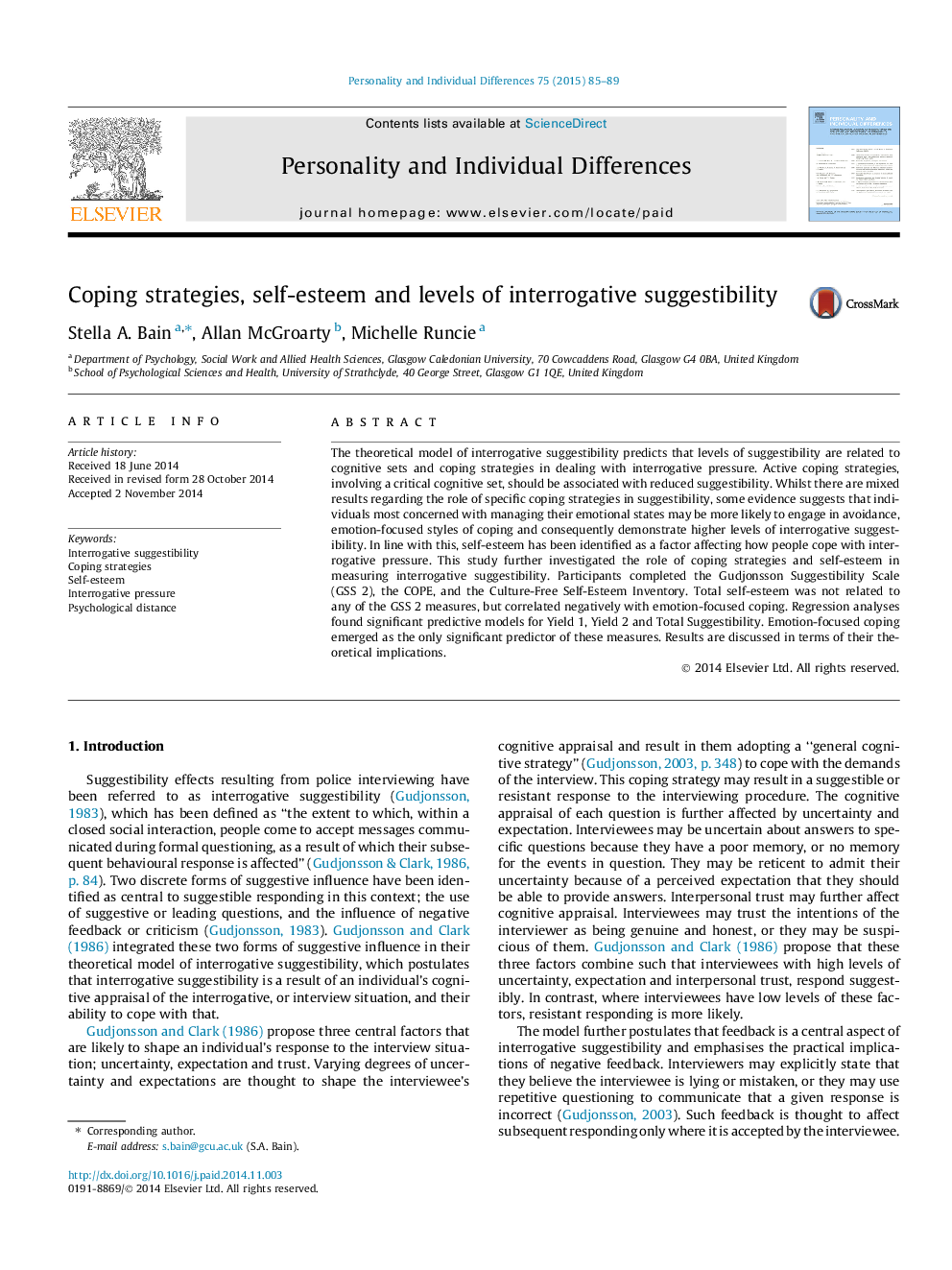| کد مقاله | کد نشریه | سال انتشار | مقاله انگلیسی | نسخه تمام متن |
|---|---|---|---|---|
| 7251722 | 1472043 | 2015 | 5 صفحه PDF | دانلود رایگان |
عنوان انگلیسی مقاله ISI
Coping strategies, self-esteem and levels of interrogative suggestibility
ترجمه فارسی عنوان
استراتژی های مقابله ای، اعتماد به نفس و سطوح قابل پیش بینی مشکوک
دانلود مقاله + سفارش ترجمه
دانلود مقاله ISI انگلیسی
رایگان برای ایرانیان
کلمات کلیدی
احتمال پذیرش مشکوک، استراتژی های مقابله، اعتماد به نفس، فشار مشکوک، فاصله روحی،
موضوعات مرتبط
علوم زیستی و بیوفناوری
علم عصب شناسی
علوم اعصاب رفتاری
چکیده انگلیسی
The theoretical model of interrogative suggestibility predicts that levels of suggestibility are related to cognitive sets and coping strategies in dealing with interrogative pressure. Active coping strategies, involving a critical cognitive set, should be associated with reduced suggestibility. Whilst there are mixed results regarding the role of specific coping strategies in suggestibility, some evidence suggests that individuals most concerned with managing their emotional states may be more likely to engage in avoidance, emotion-focused styles of coping and consequently demonstrate higher levels of interrogative suggestibility. In line with this, self-esteem has been identified as a factor affecting how people cope with interrogative pressure. This study further investigated the role of coping strategies and self-esteem in measuring interrogative suggestibility. Participants completed the Gudjonsson Suggestibility Scale (GSS 2), the COPE, and the Culture-Free Self-Esteem Inventory. Total self-esteem was not related to any of the GSS 2 measures, but correlated negatively with emotion-focused coping. Regression analyses found significant predictive models for Yield 1, Yield 2 and Total Suggestibility. Emotion-focused coping emerged as the only significant predictor of these measures. Results are discussed in terms of their theoretical implications.
ناشر
Database: Elsevier - ScienceDirect (ساینس دایرکت)
Journal: Personality and Individual Differences - Volume 75, March 2015, Pages 85-89
Journal: Personality and Individual Differences - Volume 75, March 2015, Pages 85-89
نویسندگان
Stella A. Bain, Allan McGroarty, Michelle Runcie,
